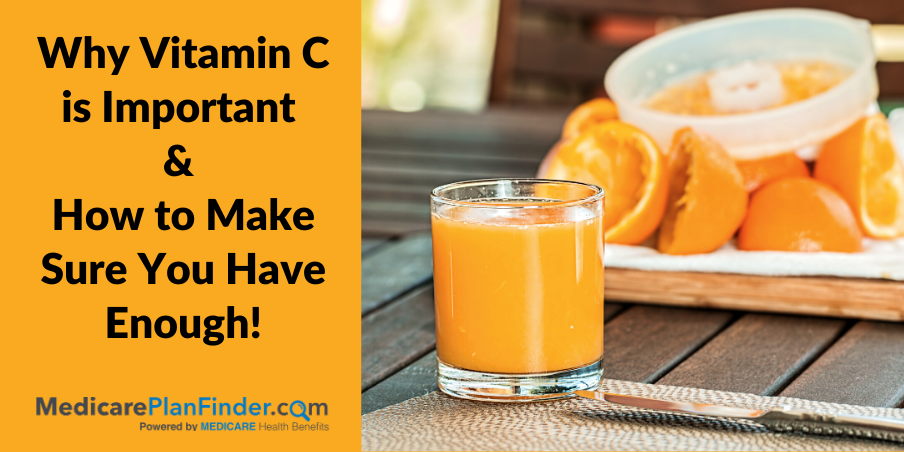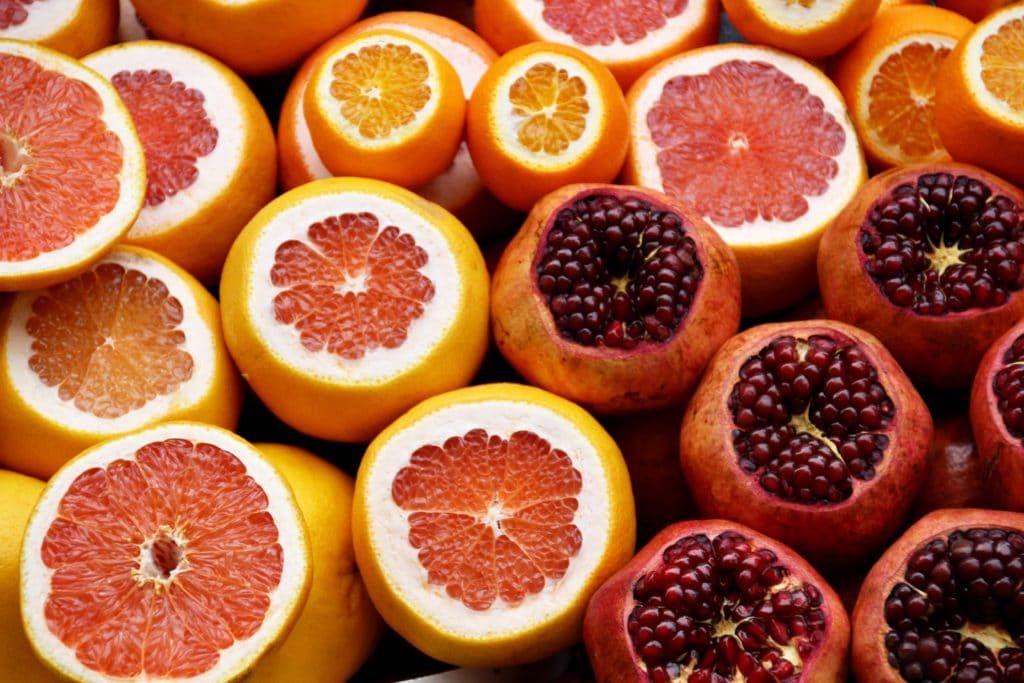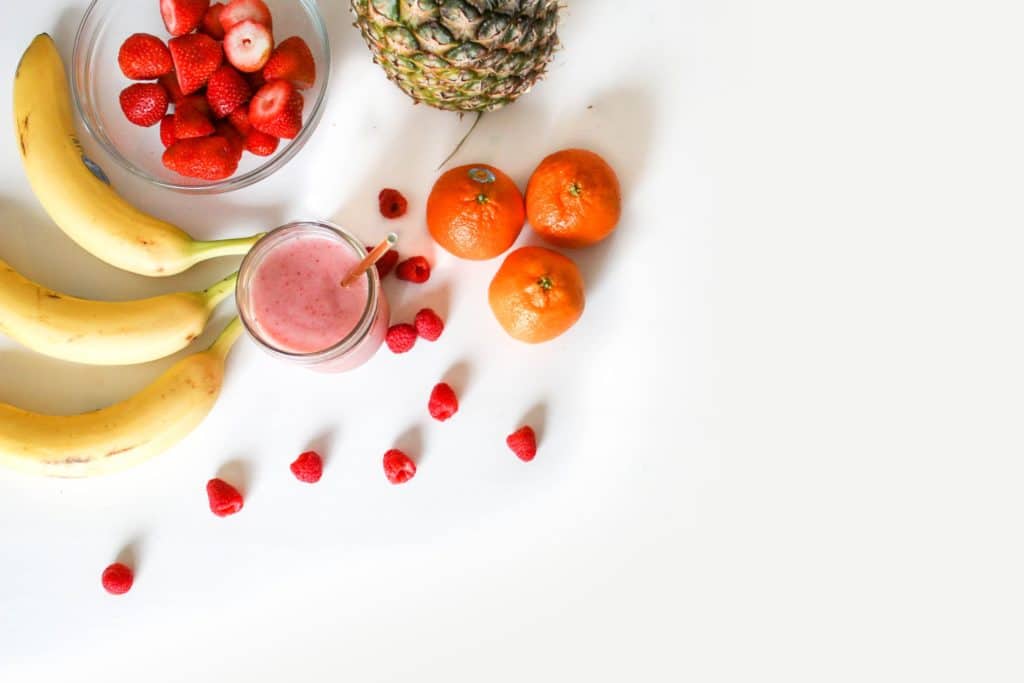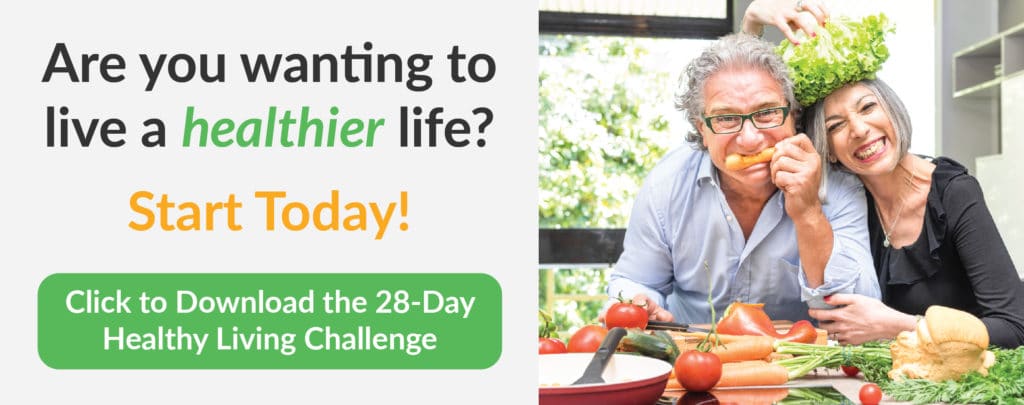
Why Vitamin C is Important for Seniors
November 25, 2019Vitamin C is an essential vitamin with several health benefits, but the body does not produce it naturally. As you age, it becomes more and more important to keep up with your diet and make sure you’re getting enough vitamins and nutrients.
The recommended daily vitamin C intake is 75mg for women and 90mg for men. That might sound like a lot, but one orange can get you at least halfway there. There are several ways to incorporate vitamin C into your diet and to make sure you’re getting enough. No excuses!
What is Vitamin C?
Vitamin C (L-ascorbic acid) is a water-soluble vitamin, meaning that it dissolves quickly in the body. While animals can “make their own” vitamin C, humans cannot produce it. Since it dissolves so quickly, it’s important to intake vitamin C every single day.
Vitamin C is necessary for the “biosynthesis of collagen, L-carnitine, and certain neurotransmitters,” and is “involved in protein metabolism,” according to the National Institutes of Health. Biosynthesis is the process of creating complex molecules that are essential for survival.
In layman’s terms, Vitamin C and biosynthesis are necessary for healing and healthy body functions.

Vitamin C Benefits: What is Vitamin C Good For?
Aside from assisting in the body’s natural biosynthesis process, vitamin C is a:
- Antioxidant – Vitamin C is a strong antioxidant, meaning it helps defend the body against harmful diseases. It can also improve white blood cell function, making it an all-around fantastic immunity booster.
- Blood Pressure Reducer – Studies have shown that Vitamin C can help relax the blood vessels, resulting in reduced blood pressure.
- Heart Disease Preventative – Vitamin C has been shown to lower the risk of heart disease, especially when taken naturally as part of a diet instead of through supplements.
- Gout Preventative – Vitamin C may reduce uric acid in the blood, helping to prevent gout, a painful form of arthritis.
- Iron Absorber – Vitamin C can help the body absorb iron properly, making it extremely useful for vegetarians and those who don’t eat enough red meat or who are anemic.
- Memory Enhancer – Studies have shown that people with dementia had low levels of vitamin C, and low levels have overall been linked to forgetfulness.
- Eye & Tooth Booster – The American Optometric Association cites vitamin C as an important vitamin for vision and dental health.

Vitamin C Side Effects
It is unlikely that you can have a vitamin C overdose, though it is recommended that you don’t take in more than 2,000mg per day. If you get all your vitamin C from food, it can be very hard to have that much in one day. However, it is possible to have 2,000mg or more in one day if you get your vitamin C from supplements.
It is unlikely to overdose and experience vitamin C side effects, but it can cause:
- Diarrhea
- Nausea/vomiting
- Heartburn
- Abdominal cramps
- Headaches
- Insomnia
- Redness/flushing
- Lightheadedness
The Dangers of a Vitamin C Deficiency (Scurvy)
Scurvy is the body’s response to a lack of vitamin C. A vitamin C deficiency can cause:
- Anemia
- Dry hair and skin
- Easy bruising, bleeding gums, and nosebleeds
- Weakened tooth enamel
- Weight gain
- Swollen joints
- Decreased ability to fight infection
Scurvy is a severe form a vitamin C deficiency, and it mostly affects older and malnourished adults.
How to Get The Right Vitamin C Dosage
The easiest and healthiest way to make sure you’re getting enough vitamin C each day is to incorporate it into your diet. Most foods that have good amounts of vitamin C have other important nutrients in them as well. For example, oranges and orange juice are well known for being a good source of vitamin C, but they also have plenty of potassium, folate (vitamin B9), and thiamine (vitamin B1).

Vitamin C Foods
Many fruits and vegetables are high in vitamin C, including:
- Guavas
- Bell peppers
- Kiwi
- Strawberries
- Oranges
- Papayas
- Broccoli
- Tomatoes
- Kale
- Snow peas
Vitamin C Drinks
If you prefer, fruit drinks can have a lot of the same value as pieces of fruit. However, be aware that many fruit juices are full of added sugars and may not be a healthy long-term solution. If you have the ability to make your own fresh-squeezed orange juice, that can be a great healthy alternative. An eight-ounce glass of fresh-squeezed orange juice can contain 125mg of vitamin C, more than the recommended daily amount!
Grapefruit juice, cranberry juice, pineapple juice, and prune juice can also provide great vitamin C value.
Vitamin C Supplements
You can find vitamin C supplements in various forms, like serums, powders, tablets, gels, and gummies!
Vitamin C Tablets, Pills, and Gummies
You can find most any supplement you’re looking for in tablet, pill, or gummy form from your local pharmacy or grocery store. Consider these examples (which can also be purchased from Amazon):
- Vitafusion Power C Gummy Vitamins: These gummies can get you to your daily recommended vitamin C dosage
- CVS 500mg Immune Health Dietary Supplement: These tables contain 500mg of vitamin C, which is labeled as 833% of your daily value! Be sure to not take too much.
- Generics: Many drugstores will have generic versions of these supplements which may be cheaper than their brand-name counterparts (but usually include the same important ingredients).

Vitamin C Serum
Vitamin C serums are usually meant to be used on the skin, so it’s a good idea to consult with your doctor or dermatologist before using a product. This example we found from InstaNatural is designed to be an anti-aging and blemish defense as well as a hydrating serum.
Vitamin C Powder
If you don’t want to take a pill but you need another form of a vitamin C supplement, you might want to try a vitamin C powder. Powders like this one from Nature’s Way are meant to be stirred into an eight ounce glass of water. You can also mix it into a smoothie or juice! This powder contains 500mg of vitamin C and only has 15 calories in it.
Emergen-C has a similar product, but it contains other nutrients as well. This one produces an orange fizzy beverage which includes vitamin C, thiamin, riboflavin, niacin, vitamin B6, folate, and vitamin B12.
Emergen-C
We couldn’t go without mentioning the other host of products that Emergen-C offers (and no, they are not sponsoring this post)! Aside from vitamin C and adult immune health support, Emergen-C also has energizing products, sleep aids, and kids immune support!

Emergen-C Ingredients
Each Emergen-C product has slightly different ingredients, but we wanted to look at the Emergen-C Probiotics Plus product designed for daily immune health support. This product has an orange flavor and will provide 250mg of vitamin C (less than other products but still more than your daily recommended intake), and 110mg of potassium. It also lists out fructose, citric acid, maltodextrin, and malic acid.
While those extra ingredients can seem a bit scary, a lot of them are found naturally in the foods we eat. For example, malic acid is what contributes to the sour taste of many fruits. Additionally, nutritionfacts.org said that by weight, citrus fruits are about 10$ citric acid. So, you might be getting these ingredients in your daily diet anyway.
Still, taking supplements does not mean that you can always eat unhealthy foods. These supplements are meant to literally supplement your diet, meaning you should still focus on eating healthy.
Emergen-C vs Airborne
Airborne is another great product that advertises a “blast of vitamin C.” Both products contain very similar ingredients but come in different forms and flavors. For example, this product from Airborne has a “Very Berry” flavor and comes in the form of a tablet that will dissolve in a glass of water.
Yummy Vitamin C-Filled Meal Ideas
If you have a hard time incorporating vitamin C-filled fruit and vegetables into your diet, consider these sneaky tricks:
- Add sliced strawberries to your morning cereal or oatmeal
- Freeze fresh fruit juices in a popsicle mold for a natural alternative to the sweet treat
- Include leafy greens in your sandwiches and burgers
- Use berries instead of chocolate chips in your pancakes and muffins
- Enjoy a bowl of tomato soup with your sandwich
- Add vitamin C powders to your water or juice
When in doubt, always ask your doctor about your diet. If you’re really struggling, your doctor might refer you to a nutritionist who can put together a concrete dietary plan designed just for you.
Consider joining our 28-day “Healthy Living Challenge” to get yourself started. Good luck!


